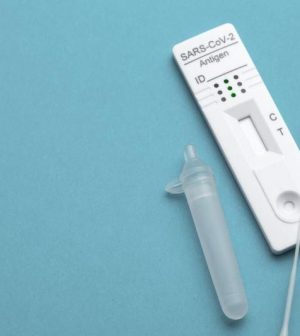- Could Your Grocery Store Meat Be Causing Recurring UTIs?
- Are You Making This Expensive Thermostat Error This Winter?
- Recognizing the Signs of Hypothyroidism
- 10 Strategies to Overcome Insomnia
- Could Artificial Sweeteners Be Aging the Brain Faster?
- Techniques for Soothing Your Nervous System
- Does the Water in Your House Smell Funny? Here’s Why
- Can a Daily Dose of Apple Cider Vinegar Actually Aid Weight Loss?
- 6 Health Beverages That Can Actually Spike Your Blood Sugar
- Treatment Options for Social Anxiety Disorder
COVID Could Alter the Immune System, But Your Gender Matters

WEDNESDAY, Jan. 4, 2023 (HealthDay News) – Researchers studying whether COVID-19 affects how the human immune system responds to subsequent viral threats found changes in men that differed from those in women.
Researchers from the National Institute of Allergy and Infectious Diseases (NIAID) analyzed immune responses of healthy people who had received the flu vaccine. They then compared responses in those who had never had COVID with those who had mild cases and recovered.
They were surprised to find that men who had had mild COVID cases showed a stronger response to flu vaccines compared to either women with mild COVID infection or people of either sex who were never infected.
This means that the baseline immune status in previously infected men was altered in ways that changed the response to a different virus, said the authors, who included John Tsang, now a professor of immunobiology and biomedical engineering at Yale University in New Haven, Conn.
“This was a total surprise,” Tsang said in a university news release. “Women usually mount a stronger overall immune response to pathogens and vaccines, but are also more likely to suffer from autoimmune diseases.”
Researchers said these new findings may be linked to an observation made early in the pandemic — that men were much more likely to die from a runaway immune response than women after contracting SARS-CoV-2.
Researchers said even mild cases of COVID may trigger stronger inflammatory responses in males than in females. This may result in more pronounced changes to the male immune system, even long after recovery, they said.
Researchers found several differences between COVID-recovered males and healthy controls and COVID-recovered females, both before and after receiving flu shots.
Previously infected males produced more antibodies to influenza as well as increased levels of interferons, for example. These are produced by cells in response to infections or vaccines.
Typically, healthy females have stronger interferon responses than males do.
With more than 600 million people worldwide who have had COVID, understanding its lingering effects on the immune system is crucial, the authors said.
The emergence of “long COVID” symptoms in some people continues to be a major health concern, they noted.
“Our findings point to the possibility that any infection or immune challenge may change the immune status to establish new set points,” said lead author Dr. Rachel Sparks, from NIAID. “The immune status of an individual is likely shaped by a multitude of prior exposures and perturbations.”
Tsang said the findings may help scientists create better vaccines against diverse threats.
The findings were published Jan. 4 in the journal Nature.
More information
The U.S. Centers for Disease Control and Prevention has more on long COVID or post-COVID conditions.
SOURCE: Yale University, news release, Jan. 4, 2023
Source: HealthDay
Copyright © 2026 HealthDay. All rights reserved.










